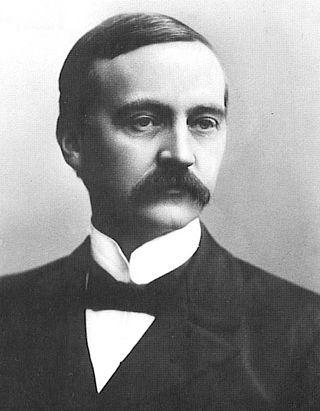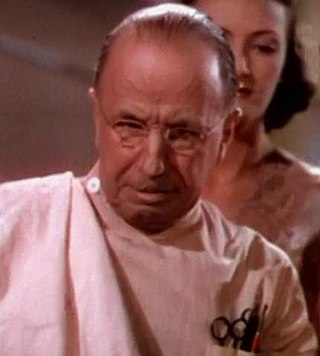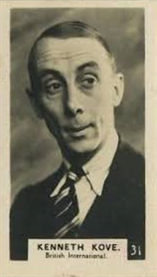Election results
| Date | Votes | Seats | Position | Size | |||
|---|---|---|---|---|---|---|---|
| No. | % | ± pp | No. | ± | |||
| 1924 | 69,627 | 3.94 | New | 4 / 230 | New | Opposition | 5th |
| 1928 | 70,820 | 3.00 | 4 / 230 | Opposition | |||
| 1932 | 48,722 | 1.95 | 4 / 230 | Opposition | |||
Liberal Party of Sweden Sveriges Liberala Parti | |
|---|---|
| Leader | Eliel Löfgren, (1923–1930) Ernst Lyberg, (1930–1933) Karl Andreas Andersson, (1933–1934) |
| Founded | 1923 |
| Dissolved | 1934 |
| Split from | Free-minded National Association |
| Merged into | Liberals |
| Ideology | Classical liberalism Anti-Prohibition |
| Political position | Right-wing |
The Liberal Party of Sweden (Swedish : Sveriges Liberala Parti) was a political party in Sweden. It was formed in 1923 by the anti-prohibition minority of the Free-minded National Association as a consequence of the split over the issue on alcohol prohibition.
In 1934 the two parties reunited in the form of the People's Party. [1]
| Date | Votes | Seats | Position | Size | |||
|---|---|---|---|---|---|---|---|
| No. | % | ± pp | No. | ± | |||
| 1924 | 69,627 | 3.94 | New | 4 / 230 | New | Opposition | 5th |
| 1928 | 70,820 | 3.00 | 4 / 230 | Opposition | |||
| 1932 | 48,722 | 1.95 | 4 / 230 | Opposition | |||
There have been various groups in Canada that have nominated candidates under the label Labour Party or Independent Labour Party, or other variations from the 1870s until the 1960s. These were usually local or provincial groups using the Labour Party or Independent Labour Party name, backed by local labour councils made up of many union locals in a particular city, or individual trade unions. There was an attempt to create a national Canadian Labour Party in the late 1910s and in the 1920s, but these were only partly successful.
The United Farmers of Ontario (UFO) was an agrarian and populist provincial political party in Ontario, Canada. It was the Ontario provincial branch of the United Farmers movement of the early part of the 20th century.

Carl Gustaf Ekman was a Swedish politician. He was a Member of Parliament from 1911 to 1932, leader of the Freeminded People's Party between 1924 and 1932, and served as Prime Minister from 1926 to 1928 and again from 1930 to 1932.

Carl Albert Lindhagen was a Swedish lawyer, politician, and pacifist.

Arthur Hoyt was an American film character actor who appeared in more than 275 films in his 34-year film career, about a third of them silent films.

Jouett Shouse was an American lawyer, newspaper publisher, and leading Democratic politician. A conservative, he was best known for opposing the New Deal in the 1930s.
Republican Action was a Spanish left-liberal republican party between 1930 and 1934.
The Free-minded National Association was a political party in Sweden. The party was in government from 1905 to 1906 and from 1911 to 1914 under the leadership of Karl Staaff, from 1917 to 1920 under the leadership of Nils Edén, from 1926 to 1928 and from 1930 to 1932 under the leadership of Carl Gustaf Ekman and briefly from August to September 1932 under the leadership of Felix Hamrin.

Frans Gösta Viktor Ekman was a Swedish actor, director and singer. Generally spoken of as Swedish theatre's most legendary stage actor, Gösta Ekman enjoyed a prolific stage career during his short life, becoming the first real star of Swedish theatre. His boyish good looks attracted both sexes, helping to create a massive cult following and elevating him to the status of a living legend. Combined with a beautiful voice and a powerful stage presence, Ekman was able to captivate his audiences.
Law Preservation Party was the name used in the State of New York by the Prohibition Party during the early 1930s. The name change was done to affirm their support of the continuance of Prohibition in the United States in the face of widespread opposition which ended with the passing of the 21st Amendment in 1933.

Richard Whitlock Tucker was an American actor. Tucker was born in Brooklyn, New York. Appearing in more than 260 films between 1911 and 1940, he was the first official member of the Screen Actors Guild (SAG) and a founding member of SAG's Board of Directors. Tucker died in Woodland Hills, Los Angeles from a heart attack. He is interred at Forest Lawn Memorial Park, in an unmarked niche in Great Mausoleum, Columbarium of Faith.

John G. Blystone was an American film director. He directed 100 films between 1915 and 1938. He was born in Rice Lake, Wisconsin and died in Los Angeles, California from a heart attack. His grave is located at Valhalla Memorial Park Cemetery.
Julius Jaenzon was a Swedish cinematographer, essential in the early Swedish silent cinema. He is most known for his collaborations with directors Victor Sjöström and Mauritz Stiller, particularly in adaptions of novels by Selma Lagerlöf. Especially the accuracy with which he mastered the double exposure, for example in The Phantom Carriage, was much admired at the time.
The Democratic Alliance was a Bulgarian political party that existed between 1923 and 1934 when all parties were banned. During most of that period (1923-1934) it was the ruling party in the country making it the third longest-ruling party in the country after the Bulgarian Communist Party and the People's Liberal Party.

Kenneth Kove (1892–1984) was a British actor. He was a regular member of the Aldwych farce team between 1923 and 1930, often in "silly-ass" roles; appearing in It Pays to Advertise (1923), Thark (1927), A Cup of Kindness (1929), and A Night Like This (1930). He also appeared in several films.
Jakob Karl Heinrich Wilhelm Tiedtke was a German film actor. He appeared in more than 190 films between 1914 and 1955.
Woolf & Freedman Film Service was a UK film distributor which was founded by film producer C. M. Woolf, and which operated from 1919 to 1934. The company distributed more than 140 films over a 15-year period. In 1935, Woolf formed a new company, General Film Distributors.
Ewald Daub was a German cinematographer who shot more than a hundred films during his career. Daub entered the film industry during the silent era, with one of his first films being the biopic Martin Luther (1923). Over the next two decades he was to work on a number of Harry Piel thrillers and Heinz Rühmann comedies. He died in 1946 following an operation.

The 1932 Wisconsin gubernatorial election was held on November 8, 1932. Incumbent Republican Governor Philip La Follette was defeated in the Republican primary, and in the midst of the Great Depression and nationwide voter dissatisfaction with the Republican Party, Democratic nominee Albert G. Schmedeman defeated Republican nominee Walter J. Kohler Sr. and Socialist nominee Frank Metcalfe with 52.48% of the vote. Schmedeman became the first Democrat to win a gubernatorial election in Wisconsin since George Wilbur Peck in 1892. 2 years later, in 1934, La Follette would run for governor again and defeated Schmedeman, this time running with the Progressive Party.